How to Use node-fetch for Web Scraping

Lucas Mitchell
Automation Engineer
27-Sep-2024
What is node-fetch?
node-fetch is a lightweight JavaScript library that brings the window.fetch API to Node.js. It is often used for making HTTP requests from a Node.js environment, providing a modern and flexible way to handle network operations asynchronously.
Features:
- Promise-based: Uses JavaScript promises to manage asynchronous operations in a simple manner.
- Node.js Support: Specifically designed for Node.js environments.
- Stream Support: Supports streams, making it highly suitable for handling large data.
- Small and Efficient: Minimalistic design, focusing on performance and compatibility with modern JavaScript features.
Prerequisites
Before using node-fetch, ensure you have:
Installation
To use node-fetch, you need to install it using npm or yarn:
bash
npm install node-fetchor
bash
yarn add node-fetchBasic Example: Making a GET Request
Here’s how to perform a simple GET request using node-fetch:
javascript
const fetch = require('node-fetch');
fetch('https://httpbin.org/get')
.then(response => response.json())
.then(data => {
console.log('Response Body:', data);
})
.catch(error => {
console.error('Error:', error);
});Web Scraping Example: Fetching JSON Data from an API
Let’s fetch data from an API and log the results:
javascript
const fetch = require('node-fetch');
fetch('https://jsonplaceholder.typicode.com/posts')
.then(response => response.json())
.then(posts => {
posts.forEach(post => {
console.log(`${post.title} — ${post.body}`);
});
})
.catch(error => {
console.error('Error:', error);
});Handling Captchas with CapSolver and node-fetch
In this section, we’ll integrate CapSolver with node-fetch to handle captchas. CapSolver provides APIs for solving captchas like ReCaptcha V3, enabling automation of tasks that require solving such captchas.
Example: Solving ReCaptcha V3 with CapSolver and node-fetch
First, install node-fetch and CapSolver:
bash
npm install node-fetch
npm install capsolverNow, here’s how to solve a ReCaptcha V3 and use the solution in your request:
javascript
const fetch = require('node-fetch');
const CAPSOLVER_KEY = 'YourKey';
const PAGE_URL = 'https://antcpt.com/score_detector';
const PAGE_KEY = '6LcR_okUAAAAAPYrPe-HK_0RULO1aZM15ENyM-Mf';
const PAGE_ACTION = 'homepage';
async function createTask(url, key, pageAction) {
try {
const apiUrl = 'https://api.capsolver.com/createTask';
const payload = {
clientKey: CAPSOLVER_KEY,
task: {
type: 'ReCaptchaV3TaskProxyLess',
websiteURL: url,
websiteKey: key,
pageAction: pageAction
}
};
const response = await fetch(apiUrl, {
method: 'POST',
headers: { 'Content-Type': 'application/json' },
body: JSON.stringify(payload)
});
const data = await response.json();
return data.taskId;
} catch (error) {
console.error('Error creating CAPTCHA task:', error);
throw error;
}
}
async function getTaskResult(taskId) {
try {
const apiUrl = 'https://api.capsolver.com/getTaskResult';
const payload = {
clientKey: CAPSOLVER_KEY,
taskId: taskId,
};
let result;
do {
const response = await fetch(apiUrl, {
method: 'POST',
headers: { 'Content-Type': 'application/json' },
body: JSON.stringify(payload)
});
result = await response.json();
if (result.status === 'ready') {
return result.solution;
}
await new Promise(resolve => setTimeout(resolve, 5000)); // wait 5 seconds
} while (true);
} catch (error) {
console.error('Error fetching CAPTCHA result:', error);
throw error;
}
}
async function main() {
console.log('Creating CAPTCHA task...');
const taskId = await createTask(PAGE_URL, PAGE_KEY, PAGE_ACTION);
console.log(`Task ID: ${taskId}`);
console.log('Retrieving CAPTCHA result...');
const solution = await getTaskResult(taskId);
const token = solution.gRecaptchaResponse;
console.log(`Token Solution: ${token}`);
const res = await fetch('https://antcpt.com/score_detector/verify.php', {
method: 'POST',
headers: { 'Content-Type': 'application/json' },
body: JSON.stringify({ 'g-recaptcha-response': token })
});
const response = await res.json();
console.log(`Score: ${response.score}`);
}
main().catch(err => {
console.error(err);
});Handling Proxies with node-fetch
To route your requests through a proxy with node-fetch, you will need a proxy agent like https-proxy-agent. Here's how to implement it:
bash
npm install https-proxy-agentExample with a proxy:
javascript
const fetch = require('node-fetch');
const HttpsProxyAgent = require('https-proxy-agent');
const proxyAgent = new HttpsProxyAgent('http://username:password@proxyserver:8080');
fetch('https://httpbin.org/ip', { agent: proxyAgent })
.then(response => response.json())
.then(data => {
console.log('Response Body:', data);
})
.catch(error => {
console.error('Error:', error);
});Handling Cookies with node-fetch
For cookie handling in node-fetch, you can use a library like fetch-cookie. Here's how to use it:
bash
npm install fetch-cookieExample:
javascript
const fetch = require('node-fetch');
const fetchCookie = require('fetch-cookie');
const cookieFetch = fetchCookie(fetch);
cookieFetch('https://httpbin.org/cookies/set?name=value')
.then(response => response.json())
.then(data => {
console.log('Cookies:', data);
})
.catch(error => {
console.error('Error:', error);
});Advanced Usage: Custom Headers and POST Requests
You can customize headers and perform POST requests with node-fetch:
javascript
const fetch = require('node-fetch');
const headers = {
'User-Agent': 'Mozilla/5.0 (compatible)',
'Accept-Language': 'en-US,en;q=0.5',
};
const data = {
username: 'testuser',
password: 'testpass',
};
fetch('https://httpbin.org/post', {
method: 'POST',
headers: headers,
body: JSON.stringify(data),
})
.then(response => response.json())
.then(data => {
console.log('Response JSON:', data);
})
.catch(error => {
console.error('Error:', error);
});Bonus Code
Claim your Bonus Code for top captcha solutions at CapSolver: scrape. After redeeming it, you will get an extra 5% bonus after each recharge, unlimited times.
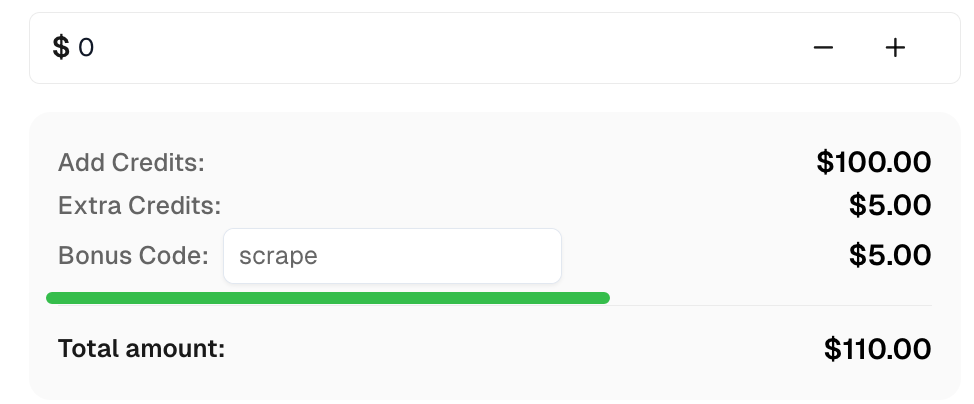
Conclusion
With node-fetch, you can effectively manage HTTP requests in Node.js. By integrating it with CapSolver, you can solve captchas such as ReCaptcha V3 and captcha, providing access to restricted content. Additionally, node-fetch offers customization through headers, proxy support, and cookie management, making it a versatile tool for web scraping and automation.
Compliance Disclaimer: The information provided on this blog is for informational purposes only. CapSolver is committed to compliance with all applicable laws and regulations. The use of the CapSolver network for illegal, fraudulent, or abusive activities is strictly prohibited and will be investigated. Our captcha-solving solutions enhance user experience while ensuring 100% compliance in helping solve captcha difficulties during public data crawling. We encourage responsible use of our services. For more information, please visit our Terms of Service and Privacy Policy.
More
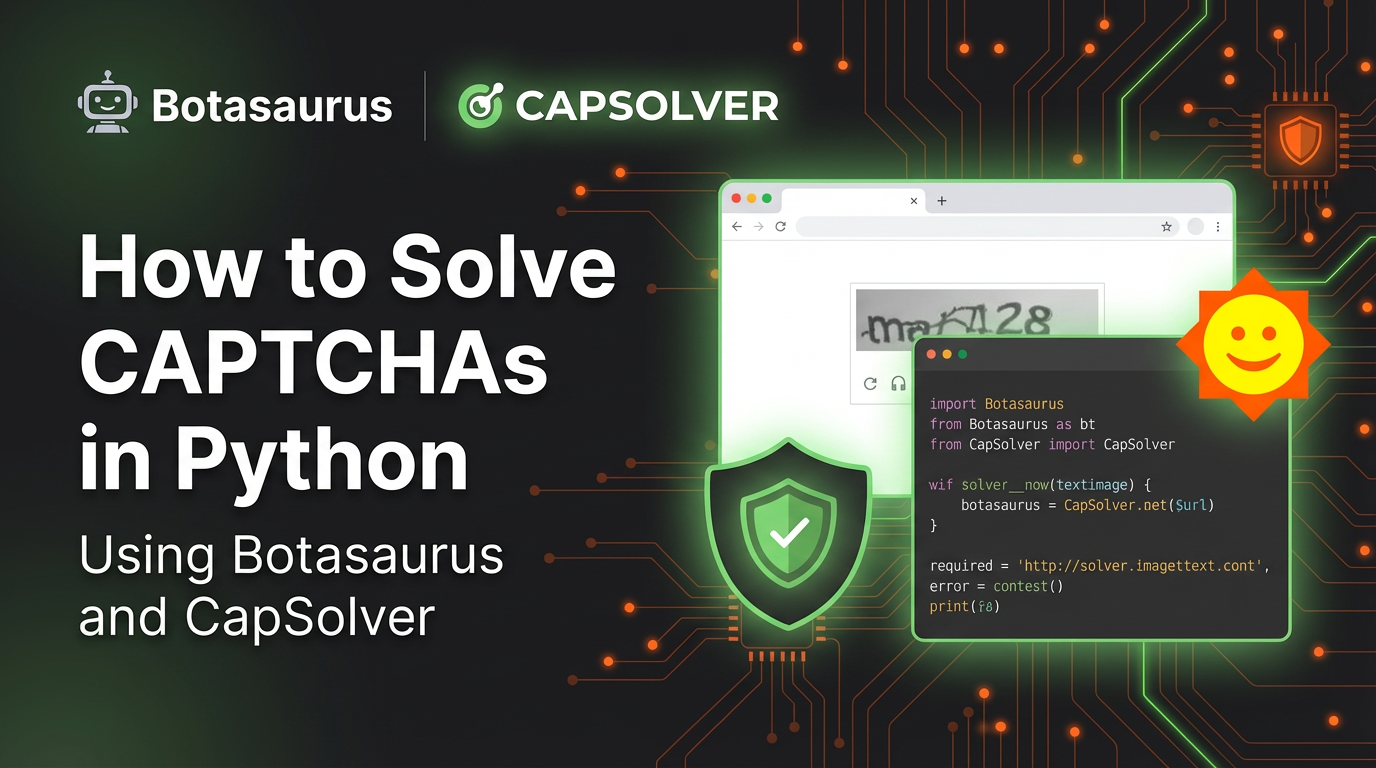
How to Solve CAPTCHAs in Python Using Botasaurus and CapSolver (Full Guide)
Learn to integrate Botasaurus (Python web scraping framework) with CapSolver API to automatically solve reCAPTCHA v2/v3 and Turnstile.

Lucas Mitchell
12-Dec-2025
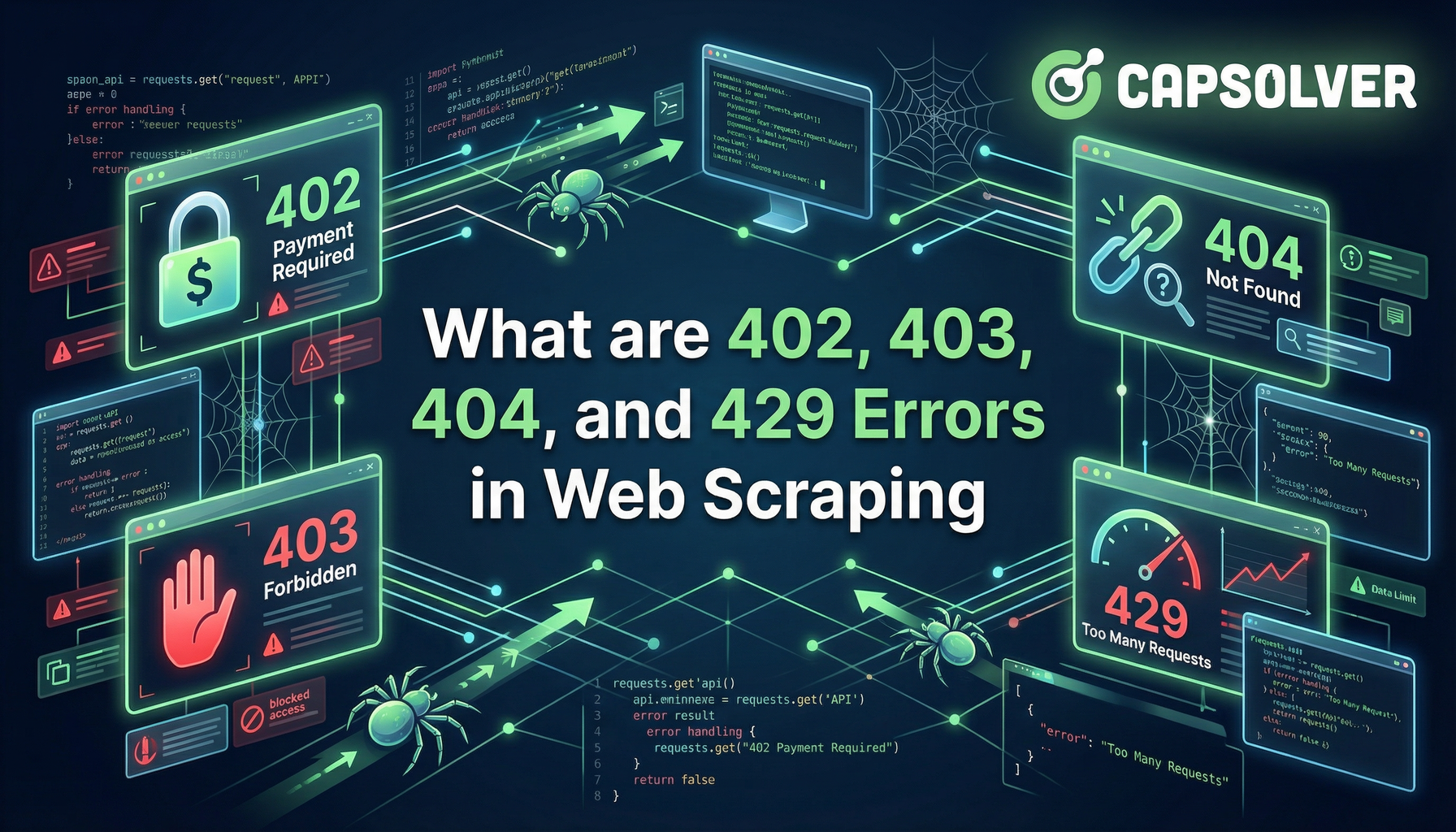
What are 402, 403, 404, and 429 Errors in Web Scraping? A Comprehensive Guide
Master web scraping error handling by understanding what are 402, 403, 404, and 429 errors. Learn how to fix 403 Forbidden, implement rate limiting error 429 solutions, and handle the emerging 402 Payment Required status code.

Sora Fujimoto
11-Dec-2025

Best Web Scraping APIs in 2026: Top Tools Compared & Ranked
Discover the best Web Scraping APIs for 2026. We compare the top tools based on success rate, speed, AI features, and pricing to help you choose the right solution for your data extraction needs.

Ethan Collins
11-Dec-2025
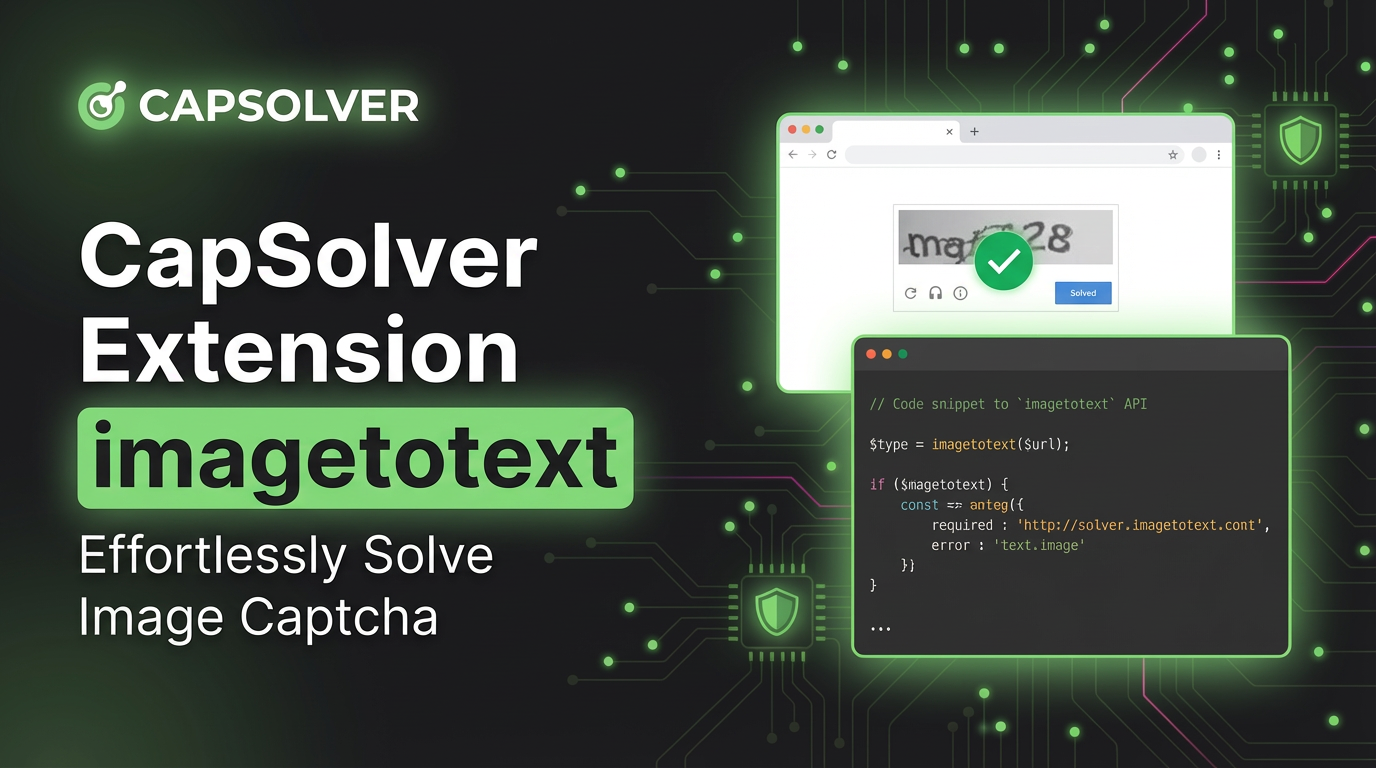
CapSolver Extension: Effortlessly Solve Image Captcha and ImageToText Challenges in Your Browser
Use the CapSolver Chrome Extension for AI-powered, one-click solving of Image Captcha and ImageToText challenges directly in your browser.

Lucas Mitchell
11-Dec-2025
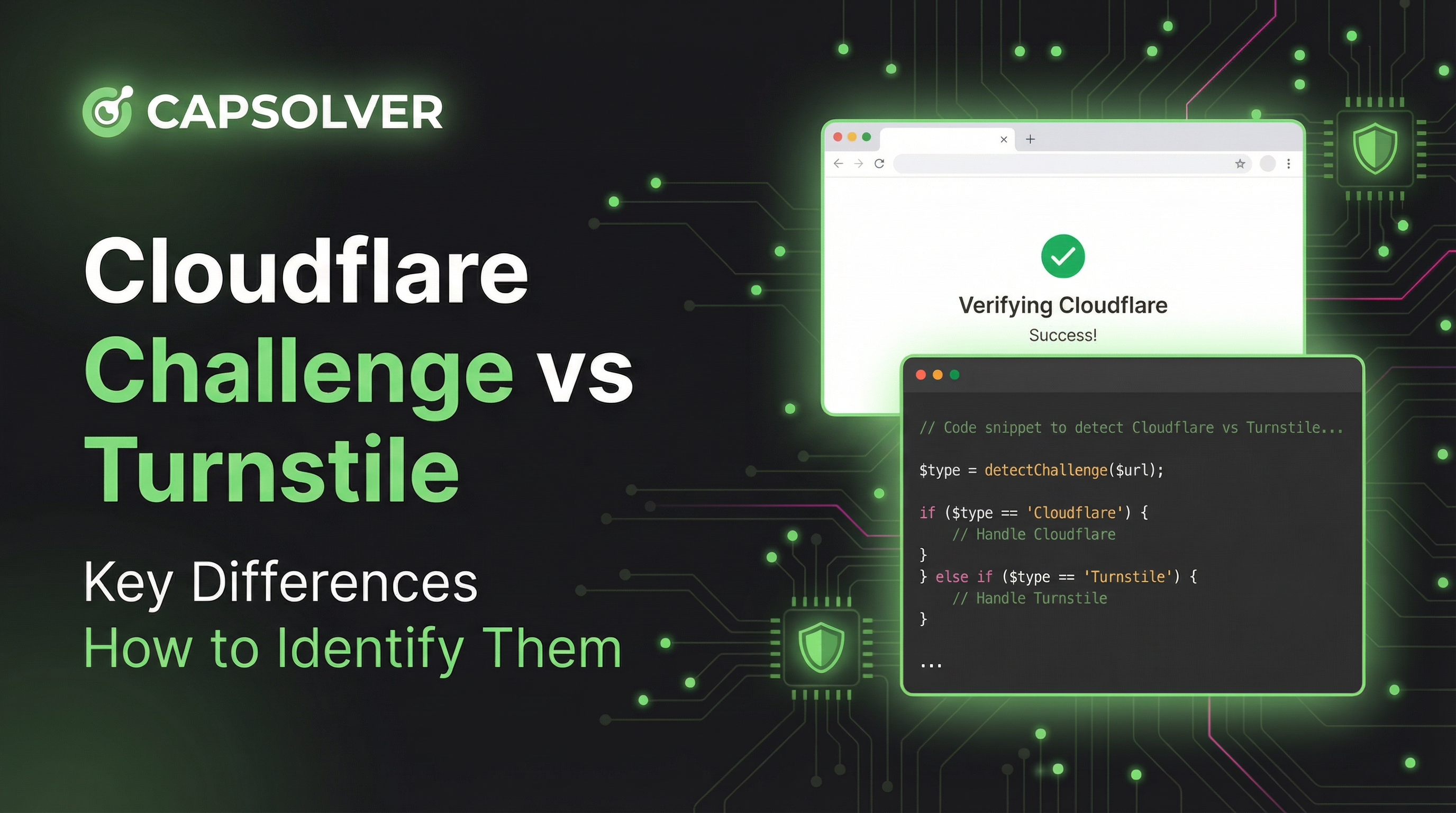
Cloudflare Challenge vs Turnstile: Key Differences and How to Identify Them
nderstand the key differences between Cloudflare Challenge vs Turnstile and learn how to identify them for successful web automation. Get expert tips and a recommended solver.

Lucas Mitchell
10-Dec-2025

How to Solve AWS Captcha / Challenge with PHP: A Comprehensive Guide
A detailed PHP guide to solving AWS WAF CAPTCHA and Challenge for reliable scraping and automation

Rajinder Singh
10-Dec-2025

